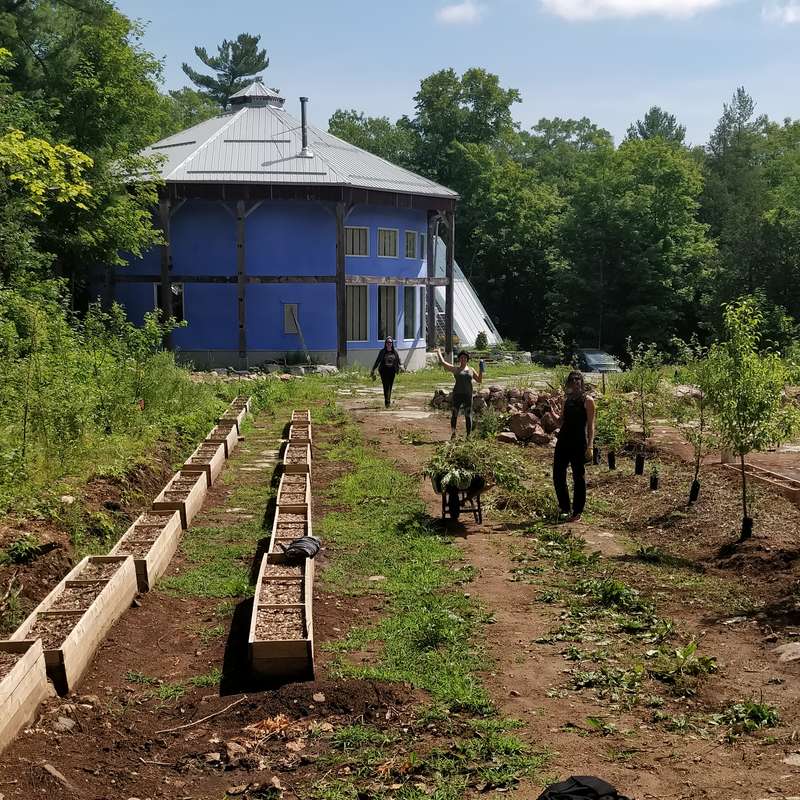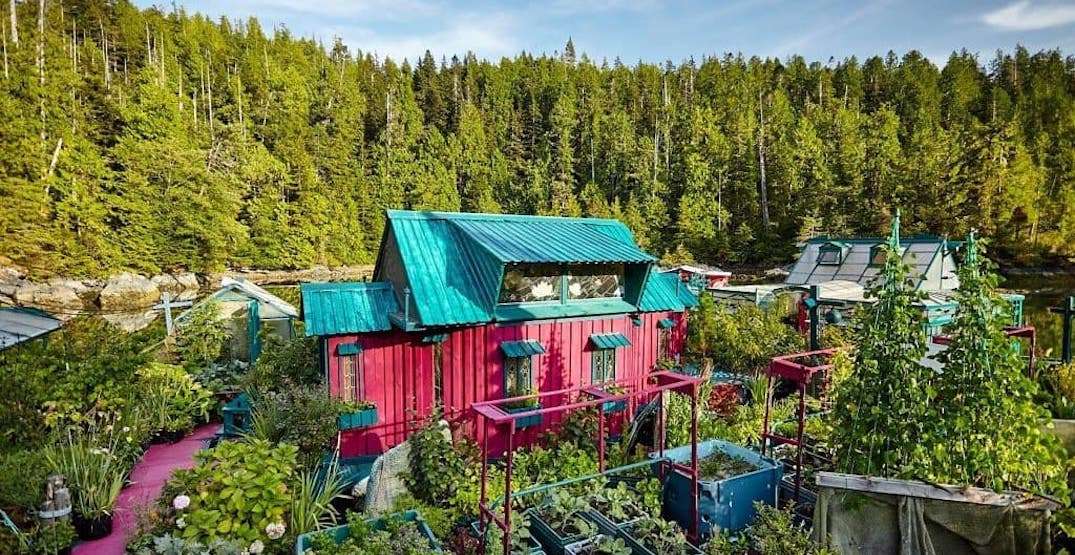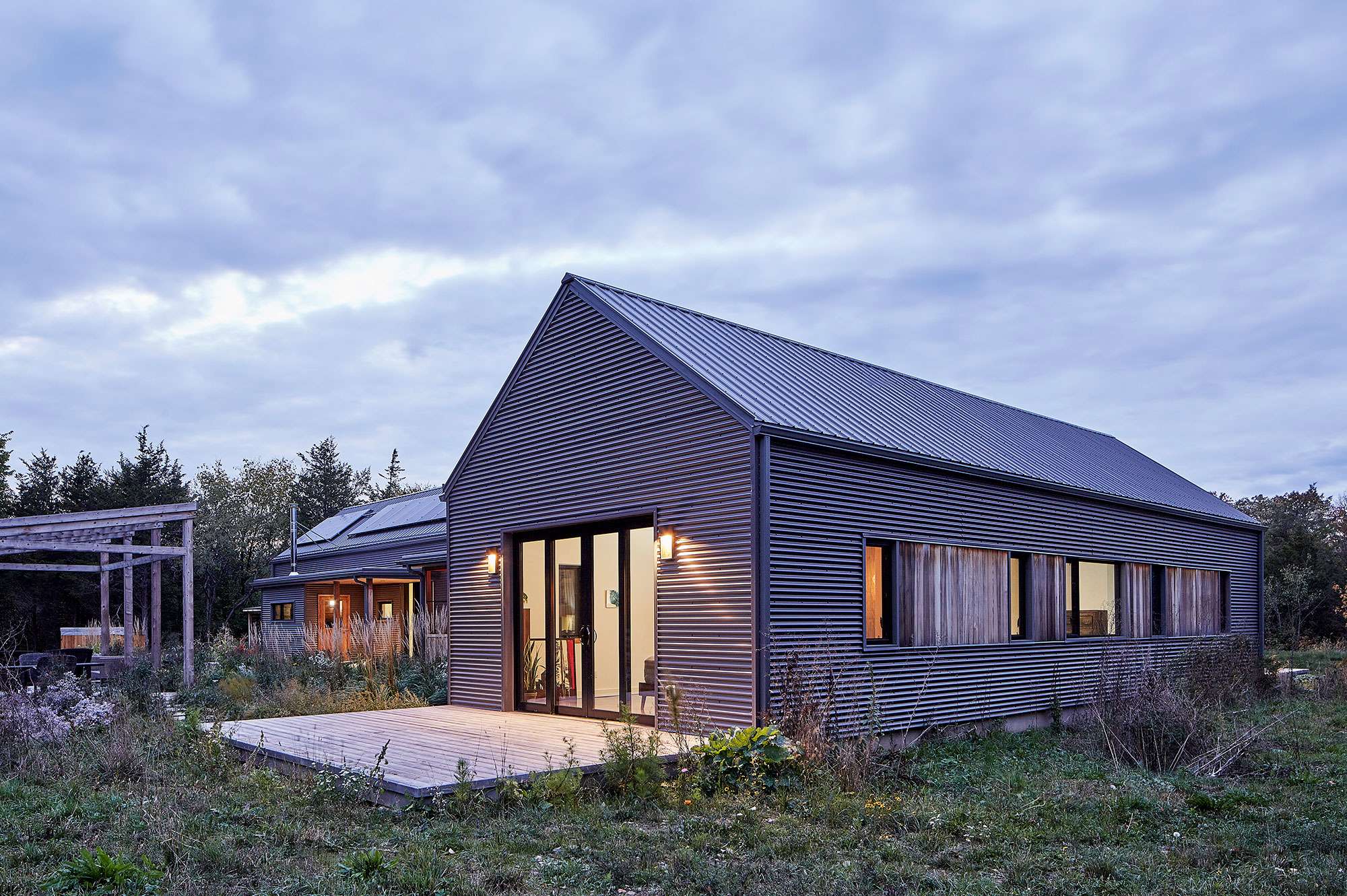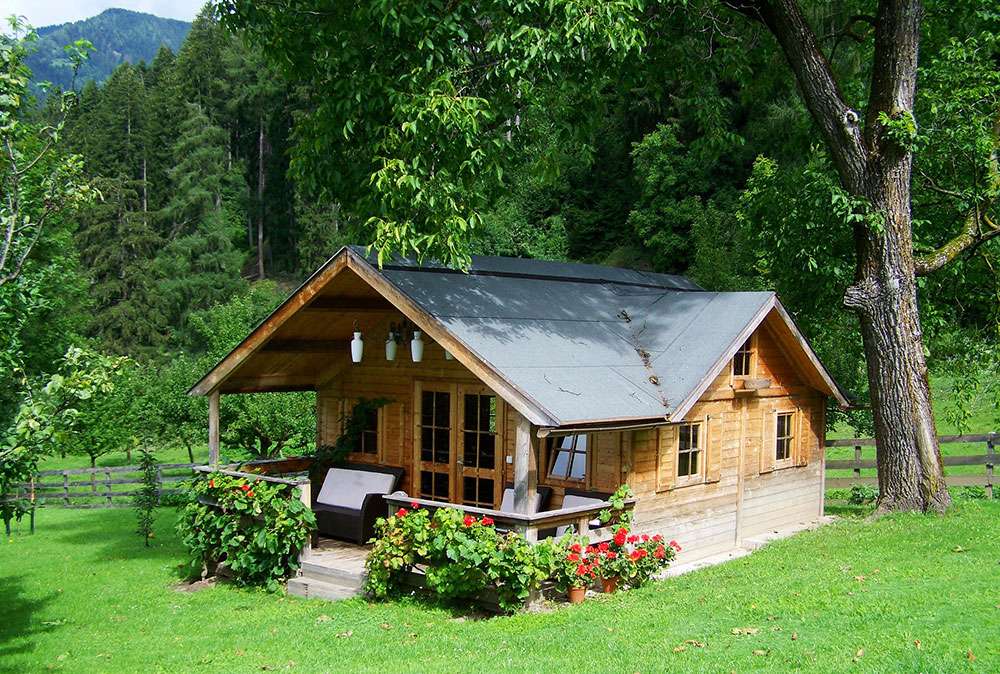Living off-grid in Ontario, Canada can be a sustainable lifestyle choice for those seeking independence from public utilities and a closer connection to nature. With a high population density and its proximity to Hudson Bay and the Great Lakes, Ontario offers a unique opportunity for off-grid living. While living off-grid is legal in Ontario, it can be challenging in densely populated areas like Toronto and Ottawa. The cost of living off-grid in Ontario is high, and there is a housing affordability problem. However, Ontario’s humid continental climate, access to freshwater resources, and diverse landscapes make it an attractive option for growing crops and utilizing renewable energy sources. It is important to comply with building codes and regulations, as living off-grid varies depending on location and the sustainable systems implemented. Although Ontario does face natural disasters such as wildfires, floods, and storms, off-grid living in Canada is legal, with regulations varying by province and municipality.

Location
Ontario, Canada: A Suitable Location
When it comes to off-grid living, Ontario, Canada proves to be an excellent choice. Located near Hudson Bay and several great lakes, Ontario offers a unique blend of natural beauty and accessibility. With its high population density and diverse geographic features, this province has much to offer for those seeking a self-sustaining lifestyle.
Population Density and Geographic Features
Ontario is known for its high population density, with 13 cities having a population over 100,000, including major urban centers like Toronto and Ottawa. While this may present some challenges for off-grid living, there are also advantages to being in a densely populated area. Access to essential amenities and services such as hospitals, schools, and markets can be more convenient.
Additionally, Ontario’s geographic features provide a dynamic backdrop for off-grid enthusiasts. From the rugged beauty of the Canadian Shield to the vast forests and rolling hills, this province offers diverse landscapes that can cater to different off-grid living preferences. Whether you prefer the isolation of a remote cabin in the woods or the community feel of a rural area, Ontario has the potential to accommodate your needs.
Challenges of Living off-grid in Ontario
Legal Considerations
While living off-grid is legal in Ontario, there are certain legal considerations that need to be taken into account. It is essential to understand the regulations and guidelines set forth by the provincial and municipal authorities. These regulations may dictate factors such as the types of structures allowed, water and waste management systems, and even restrictions on land use.
Challenges in Densely Populated Areas
Living off-grid in densely populated areas can present additional challenges. Limited space and proximity to neighbors may impact your ability to install certain off-grid systems, such as large-scale renewable energy sources. Noise and light pollution from nearby urban centers can also detract from the peace and tranquility often associated with off-grid living.
High Cost of Living off-grid
One of the significant challenges of off-grid living in Ontario is the high cost associated with it. The initial investment required to set up self-sustaining systems, such as solar panels and water filtration, can be substantial. Additionally, ongoing maintenance and expenses for fuel, batteries, and equipment can add up over time. It is important to carefully consider your budget and financial resources before embarking on an off-grid lifestyle in Ontario.
Housing Affordability Problem
Another challenge faced by those interested in off-grid living in Ontario is the housing affordability problem. The cost of housing, both in urban areas and rural regions suitable for off-grid living, has been steadily rising. As a result, finding affordable land or property to build a self-sustaining home can be challenging. It may require thorough research, patience, and creative solutions to overcome this hurdle.

Climate and Agriculture
Humid Continental Climate
Ontario experiences a humid continental climate, characterized by hot summers and cold winters. This type of climate can provide both advantages and challenges for off-grid living. The long summers with ample sunlight are ideal for harnessing solar power, while the cold winters can pose challenges for heating and maintaining energy efficiency.
Suitability for Growing Crops
Despite its cold winters, Ontario offers suitable conditions for growing crops. The high humidity and abundant freshwater resources contribute to the fertility of the land. From fruits and vegetables to grains and livestock, there are ample opportunities for off-grid residents to cultivate their own food sources and create a self-sustaining lifestyle.
Abundance of Freshwater Resources
Ontario’s proximity to the Great Lakes and access to numerous lakes and rivers make it a region abundant in freshwater resources. This availability of clean water is a vital component for off-grid living, ensuring a sustainable water supply for drinking, cooking, and irrigation purposes. Investing in water conservation and filtration systems can further enhance the self-sufficiency of off-grid residents.
Wildlife and Natural Resources
Diverse Wildlife Species
Ontario is home to a diverse range of wildlife species, making it an attractive destination for nature enthusiasts. From majestic bears to graceful deer and elusive wolves, the province’s wilderness offers abundant opportunities for wildlife observation and appreciation. However, it is essential to understand the potential interactions and challenges that living in close proximity to wildlife can bring, particularly when it comes to protecting crops and ensuring personal safety.
Access to Lakes and High Rainfall
Apart from its diverse wildlife, Ontario’s access to lakes and high rainfall is also advantageous for off-grid living. Lakes can provide recreational opportunities such as fishing and swimming, while also serving as a reliable water source. The high rainfall ensures a more sustainable water supply, reducing the dependency on external water sources and enhancing the self-reliance of off-grid residents.

Renewable Energy Sources
Solar Power
Harnessing solar power is a viable option for generating electricity in off-grid living in Ontario. The region experiences ample sunlight, particularly during the summer months, which makes solar energy an efficient and sustainable choice. Investing in solar panels and energy storage systems can provide off-grid residents with a reliable source of power while minimizing carbon footprint.
Wind Turbines
Wind turbines can also be utilized to generate electricity in Ontario’s off-grid communities. With its diverse landscapes and potential for consistent wind patterns, certain regions are particularly suitable for harnessing wind power. Wind turbines can supplement or even replace solar panels, providing a diversified renewable energy system that contributes to the sustainability of off-grid living.
Building Codes and Regulations
Legal Status of Off-grid Living
Living off-grid is legal in Ontario; however, compliance with building codes and regulations is necessary. These codes aim to ensure the safety, health, and environmental standards of off-grid structures. It is crucial to work with professionals and experts who understand the regulations and can help navigate the process of obtaining the necessary permits and approvals.
Compliance with Building Codes
Complying with building codes requires careful planning and adherence to specific guidelines. This may include considerations such as structural integrity, fire safety measures, waste management systems, and energy efficiency standards. While it can add complexity and potentially increase costs, compliance with these regulations helps ensure the long-term viability and safety of off-grid homes in Ontario.

Cost of Living off-grid
Factors Affecting Cost
The cost of living off-grid in Ontario can vary depending on several factors. Location plays a significant role, as more desirable areas with abundant resources and accessibility may come at a higher price. The choice of sustainable systems, such as solar panels or wind turbines, can also impact the overall cost. Additionally, ongoing maintenance and expenses related to powering and sustaining the off-grid lifestyle need to be considered.
Location and Sustainable Systems
The location of an off-grid property in Ontario can significantly affect the cost of living. Remote areas may require more extensive infrastructure development and transportation costs. On the other hand, regions with established off-grid communities may offer more affordable options and access to shared resources. The choice of sustainable systems should also be carefully evaluated, considering the upfront investment, maintenance requirements, and long-term cost-effectiveness.
Landscape and Regional Diversity
Diverse Landscapes
Ontario’s landscape is diverse, providing off-grid residents with a range of options to suit their preferences. From the picturesque shores of the Great Lakes to the rugged beauty of the Canadian Shield and the tranquility of rural areas, there is a landscape for every off-grid enthusiast. The diversity of landscapes ensures that individuals can find their ideal setting to build their self-sustaining homes and connect with nature.
Regions Suitable for Off-grid Living
Certain regions in Ontario are particularly suitable for off-grid living. These areas offer a combination of natural resources, accessibility, and supportive communities. The choice of region depends on personal preferences and priorities, ranging from proximity to urban amenities to the desire for complete seclusion. Some popular regions for off-grid living in Ontario include the Muskoka region, the Bruce Peninsula, and parts of Eastern Ontario.

Natural Disasters
Wildfires
Wildfires can pose a significant risk to off-grid communities in Ontario, particularly during dry and hot periods. Living in forested areas increases the vulnerability to wildfires, necessitating proactive measures such as proper land management, fire-resistant construction materials, and emergency planning. Staying informed about fire warnings and evacuation procedures is essential for the safety of off-grid residents.
Floods
Ontario’s proximity to large bodies of water and its high rainfall can result in flooding in certain regions. Living off-grid requires careful consideration of flood risk and selecting appropriate locations to minimize the potential impact. Implementing flood mitigation measures such as proper drainage systems and elevated foundations can help mitigate the risks associated with floods.
Storms
Ontario experiences various types of storms, including thunderstorms, blizzards, and ice storms. These weather events can potentially disrupt off-grid living by damaging infrastructure, disrupting power supply, and impacting food production. Being prepared with backup systems, emergency supplies, and a robust disaster management plan is vital to withstand the challenges that storms may bring.
Regulation of Off-grid Living in Canada
Legality of Off-grid Living
In Canada, including Ontario, living off-grid is legal. However, it is important to note that regulations can vary by province and municipality. It is crucial to understand and comply with the specific rules and guidelines of the region in which you plan to live off-grid. This may involve obtaining permits, meeting building requirements, and adhering to environmental regulations.
Provincial and Municipal Regulations
Provincial and municipal regulations oversee various aspects of off-grid living, including land use, building codes, waste management, and water systems. Researching and understanding these regulations can help off-grid residents ensure that their lifestyle aligns with legal requirements and contributes positively to the community and the environment. Consulting professionals with expertise in off-grid living can also provide valuable guidance in navigating the regulatory landscape.
In conclusion, Ontario, Canada offers a suitable location for off-grid living, with its rich natural resources, diverse landscapes, and supportive communities. However, there are challenges to consider, such as legal considerations, the high cost of living off-grid, and the housing affordability problem. Ontario’s climate and abundance of freshwater resources further enhance its attractiveness as an off-grid destination. Understanding the wildlife and natural resources, as well as the regulations surrounding off-grid living, is key to creating a successful and sustainable off-grid lifestyle in Ontario. With careful planning, research, and adherence to building codes and regulations, individuals can embrace the self-sufficiency and freedom that off-grid living offers in this beautiful province.




